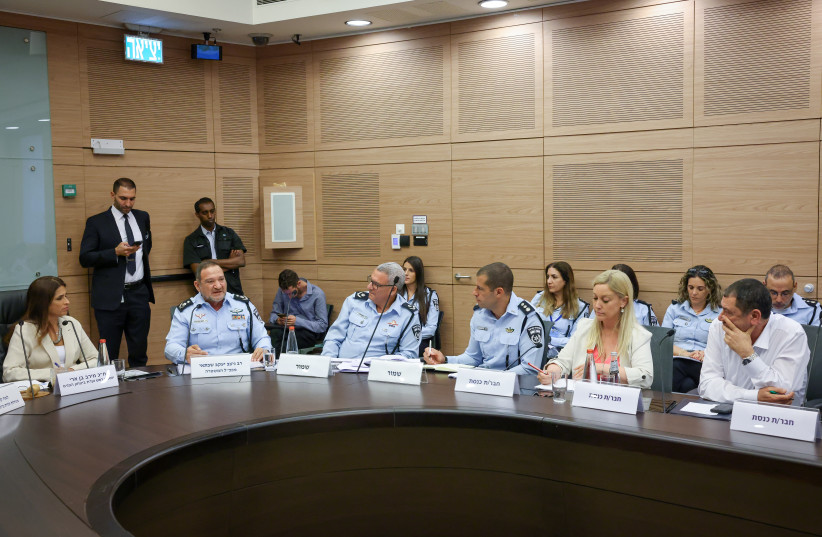The Israel Police is lacking 1,720 officers. This is not only causing the closure of police stations and impairing the ability to properly respond to life-threatening events, but also putting a lot of pressure on working officers.
The force is short 566 patrol officers, 322 investigators and 198 detectives among other officers, causing the closure of 18 police stations across the country and leaving 12,880 cases unattended.
The lack of manpower is also hitting existing stations. The city of Rishon Lezion, for example, had a police force of 180 officers back when the city’s population was at 180,000 several years ago. The population has almost doubled since then but the number of officers has remained the same.
In a meeting with the Public Security Committee, Israel Police Insp.-Gen. Kobi Shabtai spoke of the severe lack in manpower, pinning most of the blame on inadequate pay and lack of funding.
“We don’t have enough officers, we can’t provide quality service as a police force should, a commanding shift officer in a station has so many open events with such little manpower that he has to start prioritizing which ones to respond to, people’s security is at risk,” Shabtai said.

Some assignments the police regard as a must, such as presence in Jerusalem’s Old City and on the Temple Mount, are also lacking enough manpower.
Other officers are being pulled in to fill the gap, causing issues in other stations.ns.
"We're constantly understaffed, every day we have officers from other stations come and help us out, sometimes even completely new recruits"
Police officer
“We’re constantly understaffed,” said an officer in the Old City. “We constantly have officers from other stations come and help us out, sometimes even completely new recruits.”
He explained that it’s difficult to bring in officers from other stations because they do not understand the complexity of the area.
Shabtai said the main reason for not being able to enlist enough officers is low pay, as the police do not have enough funding to properly compensate officers.
Of the officers who left the force, 71% cited inadequate pay as their reason, with 42%-49% stating a high workload, exhaustion and long working hours as contributing factors.
Many officers are taking on extra work outside the force to make ends meet. A riot police officer working in Jerusalem said he is constantly taking on extra work, such as working security at soccer stadiums.
“All of the guys do it,” he said. “Sometimes we feel like we have to just to support our families.”
Low wages?
Finance Ministry Deputy Budget Commissional Amir Reshef told the Public Security Committee, “Since 2014, the Israeli government has been prioritizing the police in the state budget. The police have grown, but they are unable to meet the standards for various reasons.”
Reshef said that wages are higher than the average salary in Israel and higher than those in countries with a similar average income. Officers with three years of seniority are paid NIS 12,000 a month on average in contrast to the national average of NIS 10,428.
New recruits earn NIS 10,500 per month after they finish training.
“You are misleading the public,” Shabtai said in response.
